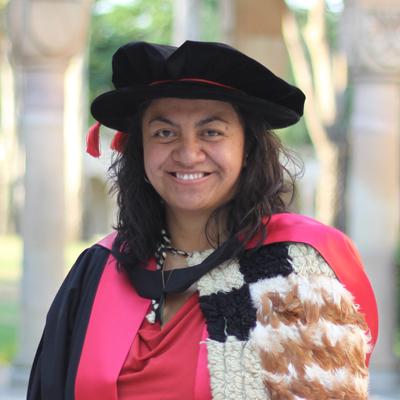Plant and food biologist Dr Jonni Koia (Tainui, Ngati Whawhākia) has accepted a research position at the University of Waikato to investigate the potential of traditional Māori herbal medicines to help combat type-2 diabetes.

Her study is one of 16 Māori career development awards recently announced by the Health Research Council of New Zealand.
According to Dr Koia, New Zealand’s indigenous flora is one of the most unique and diverse in the world, with many species having rongoā or medicinal properties that Māori have used for hundreds of years. However, New Zealand’s unusually diverse collection of flora, rongoā rākau, has not been clinically evaluated and tested for use in treating type- 2 diabetes.
“Māori herbal medicines have provided relief for many common ailments and chronic conditions over centuries where mātauranga Māori (traditional knowledge) holds significant importance,” explains Dr Koia.
“Given New Zealand’s unique indigenous flora, the plant vegetation foods, seeds, roots, nuts, and fruits that formed the basis of traditional Māori diet and rongoā rākau seem worthwhile targets in a systematic search for anti-diabetic agents.”
Dr Koia notes that Type 2 diabetes (T2D) is “particularly prevalent among Maori.” While many Type 2 diabetics control blood glucose levels by eating better, exercising, and using available drugs, the drugs are “associated with side effects such as weight gain, heart failure and fluid retention,” making it essential to “find new anti-diabetic agents that target insulin resistance.”
She adds, “For Maori there is evidence that culturally relevant management approaches provide better outcomes.”
Dr Koia also says that working with the Maori community through the governing body of rongoa Maori Te Kahui Rongoa Trust is a vital part of this project in order to safeguard matauranga Maori for the rongoa rakau under investigation.
Dr Koia, a member of The Church of Jesus Christ of Latter-day Saints, was raised in the small mining town Huntly in the heart of the Waikato.
“My parents sacrificed much for myself to attend Church College of New Zealand (CCNZ) and to support my two brothers on missions during the same time in the 90s,” she recalls. “It was at CCNZ I developed an interest in biological sciences.”
She later attended University of Waikato and was awarded a BSc (technology) and MSc with first class honours. She then attended University of Queensland in Brisbane where she was awarded a PhD in Plant Biotechnology and a Graduate Certificate in Research Commercialisation.
Dr Koia and her husband have two young children. They will return to New Zealand next year to take up the award.
“I’m very grateful and honoured to receive this fellowship,” she says.
“I’m grateful for the opportunity it will provide to return home with my young whānau and to give back to my whānau, hapū and iwi. I look forward to contributing towards advancing rongoā rākau and safeguarding mātauranga Māori for the betterment of our people as a whole in Aotearoa.”